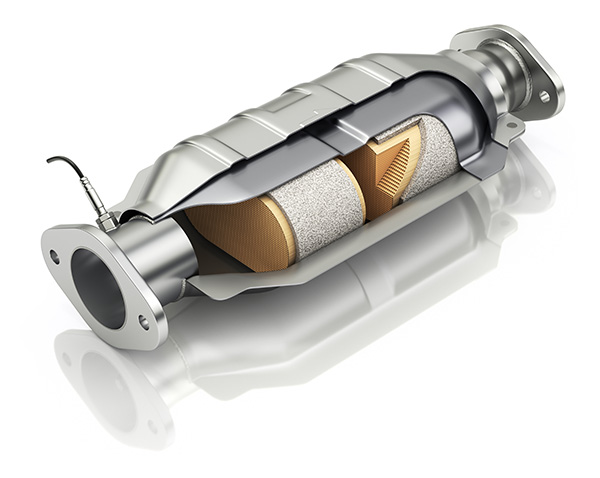
When your car hesitates or struggles to accelerate, it’s easy to suspect fuel or ignition problems. However, one component that is often overlooked is the catalytic converter. While it's mainly known for reducing emissions, a failing or clogged catalytic converter can have a direct impact on engine performance—and it may be the reason your vehicle feels sluggish when you hit the gas.
Here’s how a bad catalytic converter affects acceleration, what signs to watch for, and when it’s time to get it checked out.
What the Catalytic Converter Does
The catalytic converter is part of your exhaust system. Its job is to convert harmful gases from combustion into less harmful emissions before they exit the tailpipe. It uses a combination of heat and rare metals to trigger chemical reactions that reduce pollutants like carbon monoxide, hydrocarbons, and nitrogen oxides.
While it’s great for the environment, the catalytic converter also creates some back pressure in the exhaust system. If it becomes clogged, damaged, or overheated, that pressure increases and interferes with the engine’s ability to breathe.
Why a Clogged Converter Hurts Acceleration
A healthy engine needs to exhale exhaust gases as easily as it takes in air and fuel. When the catalytic converter is clogged, exhaust can’t escape efficiently. This causes a backup in the system, reducing engine power, making acceleration sluggish, and potentially causing stalling.
You might notice that your vehicle responds slowly when you press the gas pedal, especially when merging, passing, or climbing hills. It may feel like the engine is working harder than usual but without delivering the speed or torque you expect.
Other Symptoms of Catalytic Converter Problems
Besides poor acceleration, a bad catalytic converter can cause a range of symptoms. One of the most common is the check engine light turning on. Modern vehicles have oxygen sensors before and after the catalytic converter. If the readings between the two sensors don’t match the expected values, the engine control unit will detect a problem and illuminate the warning light.
You might also notice reduced fuel economy, a sulfur or rotten egg smell from the exhaust, or a rattling noise if the converter’s internal materials have broken down. In more severe cases, the engine may overheat or shut off unexpectedly due to restricted exhaust flow.
What Causes Catalytic Converters to Fail
There are several reasons catalytic converters go bad. Long-term exposure to unburned fuel, often caused by misfires or faulty spark plugs, can cause the internal core to overheat and melt. Oil or coolant leaks that enter the exhaust can also contaminate the converter, reducing its effectiveness.
Sometimes, the converter simply wears out from age and mileage. If your vehicle has more than 100,000 miles and is starting to show symptoms, the converter may be nearing the end of its life.
How to Address the Problem
If your car is struggling to accelerate and showing any of the symptoms mentioned, it's time for a thorough inspection. We check the converter’s flow and efficiency, inspect related sensors, and evaluate the health of the entire exhaust system. It's important to identify whether the converter itself is the issue or if an underlying problem, such as an engine misfire or faulty sensor, is causing the damage.
Replacing a catalytic converter can be a significant expense, but ignoring the problem can lead to even more costly engine repairs and continued poor performance.
Davenport Motor Company – Exhaust and Emissions Service in Plano, TX
At Davenport Motor Company in Plano, our technicians are experienced in diagnosing catalytic converter issues and resolving the root causes behind poor acceleration. If your car feels sluggish or your check engine light is on, let us take a look and restore your engine’s power and efficiency.
Schedule a visit today and get back to enjoying a smooth, responsive ride.